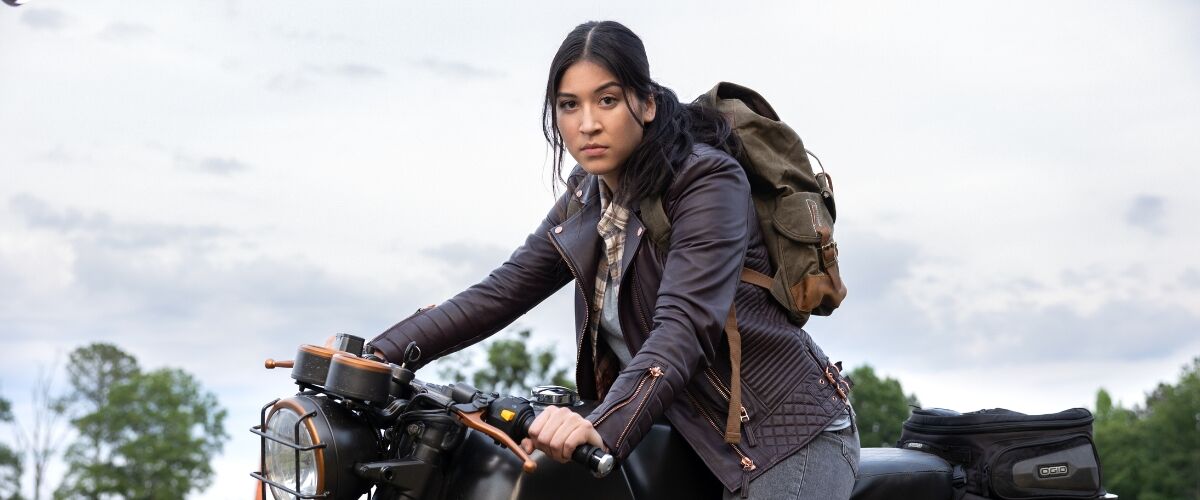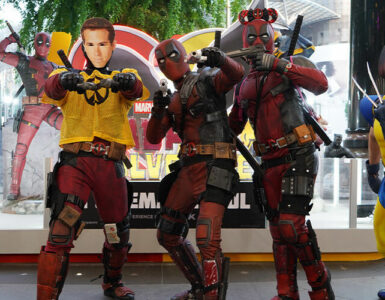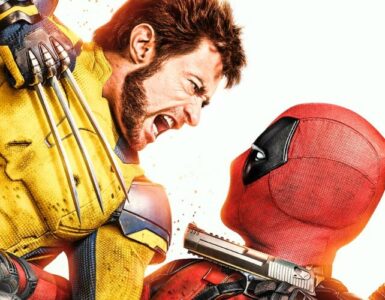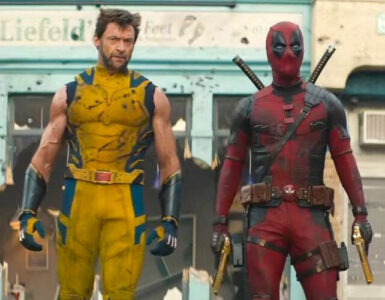This review is based on the first three episodes of Echo.
Forget spandex, quips, formulaic narratives and predictable character arcs – those have become an echo in the new Marvel Cinematic Universe’s (MCU), going by its latest series, and the first to score a TV-MA mature rating. Instead, the five-episode Echo, based on the Marvel Comics’ character of the same name, and starring the anti-hero who made her debut in Disney+’s Hawkeye, Echo leaps bravely into place, daring to tread a path reminiscent of the gritty streets traversed by Netflix’s Daredevil (2015-2018) and The Punisher (2017-2019).
Plunging into a realm of unfiltered reality, and eschewing the lighthearted tone of She-Hulk: Attorney at Law or the spy-fi intrigue of Secret Invasion, the series, led by deaf Native American actress Alaqua Cox, explodes with bone-crunching action and unflinching violence, offering a What If… reminder of Marvel’s Netflix experiments that delivered a hard-hitting action thriller.
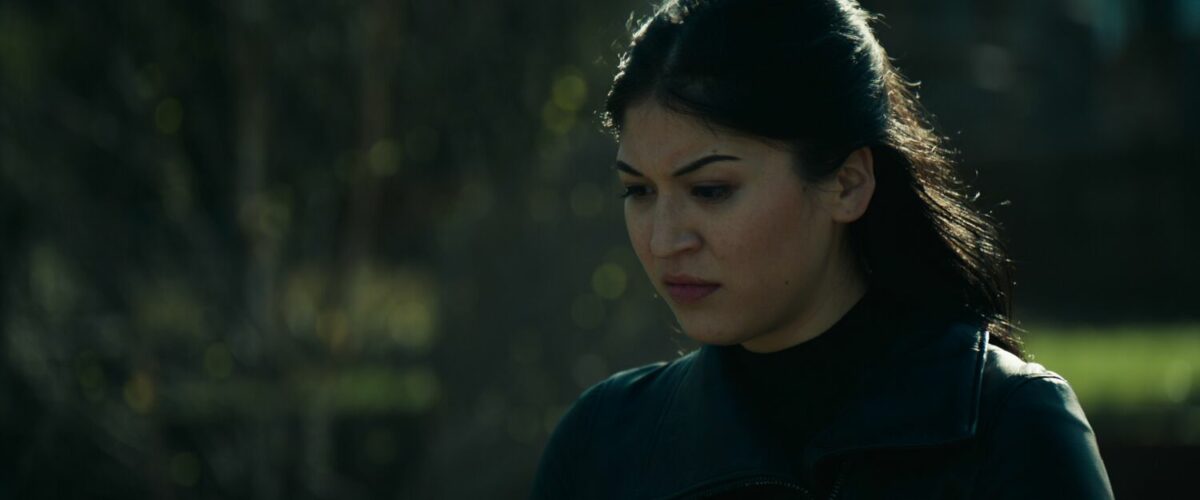
Set in the gripping aftermath of Hawkeye, Echo has no foundation in the MCU films, and the deaf Choctaw Native American and ex-leader of the Tracksuit Mafia finds herself entangled in a challenging journey after a pivotal confrontation with Clint ‘Hawkeye’ Barton (Jeremy Renner), and the consequential targeting of Wilson Fisk aka Kingpin (Vincent D’Onofrio) for her father’s murder.
Seeking refuge in her Oklahoma hometown, this homecoming forces Maya to confront her family history, rediscover her Choctaw heritage, and redefine what family and community truly mean to her. For longtime MCU fans though, it marks the return of Fisk and Matt ‘Daredevil’ Murdock (Charlie Cox) in a Marvel series, even if the duo don’t share any screen time in the first three episodes.
At the heart of Echo beats Alaqua Cox’s gripping portrayal of the deaf Maya Lopez, a woman grappling with the tangled threads of her Indigenous heritage and personal trauma. The series shines in its immersive sound design and the way its action sequences draw viewers into Maya’s world through intimate moments. Cox delivers a standout performance, infusing Maya with depth and authenticity right from the first episode, which also marks a bold shift in storytelling.
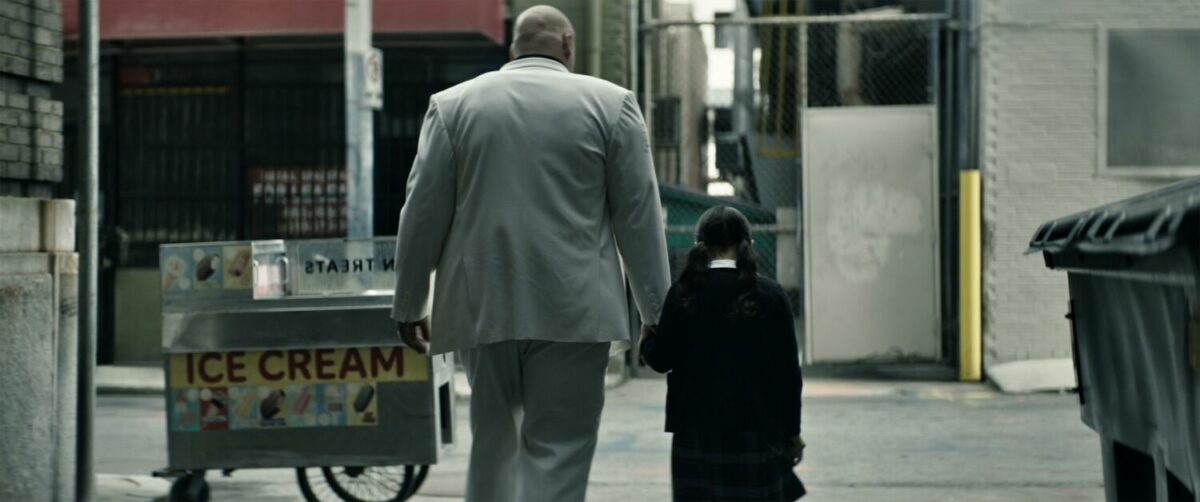
Using masterfully woven flashbacks, this opening chapter unravels the intricacies of Maya’s backstory, skillfully weaving key moments together and establishing her journey without demanding prior MCU knowledge. This move aligns with the series being the first in Marvel’s Spotlight banner, freeing viewers from continuity baggage throughout 15 years of the MCU.
The first episode, set against the backdrop of Maya’s Choctaw heritage, is a flashback that delves into how her ancestors’ voices guide her family, creating a rich tapestry of cultural significance. Tragedy strikes early in Maya’s life, as the audience witnesses the heart-wrenching moment when her mother dies in a car accident. This event becomes a catalyst for Maya’s father, William Lopez (Zahn McClarnon) to move to New York City, eventually working under the shadow of Kingpin as the commander of the Tracksuit Mafia.
The narrative leads up to the tragic murder of her father by Clint ‘Ronin’ Barton (Jeremy Renner) during The Blip, in his goal to take out organised crime in New York, based on a tip from Kingpin. Unaware of Kingpin’s betrayal, Maya’s burning desire for revenge against Ronin is manipulated by Fisk, who channels her anger into committing crimes for his benefit. Amidst this turmoil, the series delivers its most riveting action sequences, most notably against Daredevil. How would a blind man communicate with a deaf woman? Echo’s one-shot fight scenes, reminiscent of Daredevil‘s iconic hallway battles, are a highlight, showcasing the series’ dedication to intense, visceral combat choreography and it’s her extended fight against Daredevil that becomes a focal point.
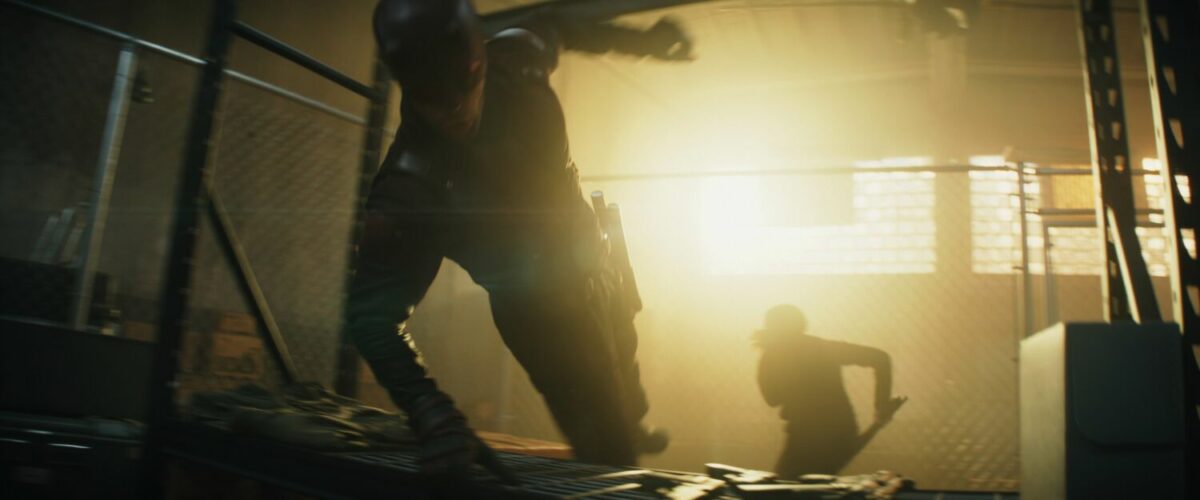
In their fight shown as a flashback, Daredevil’s acrobatic finesse and Maya’s raw, unbridled fighting style clash spectacularly, creating a sequence that’s captivating and narratively significant. While this confrontation emphasises Daredevil’s skill and presence in the MCU, it unfortunately overshadows Maya’s own fighting skills in these moments. Make no mistake – this is the Daredevil from the Netflix series, costume and all, dismissing any talk that those previous three seasons cannot fit into the current MCU.
After shooting Fisk in the face, Maya flees home and reunites with family, including her uncle Henry (Chaske Spencer), who runs a local skating rink yet remains entangled in Fisk’s criminal activities. Maya’s return at the last act of the episode sparks a mission of vengeance against Fisk’s empire, even as she faces threats for her actions against Fisk.
Echo masterfully employs thematic parallels to weave deeper meaning into Maya’s journey. This skill shines through in both episodes two and three, each opening with scenes rich in symbolism.
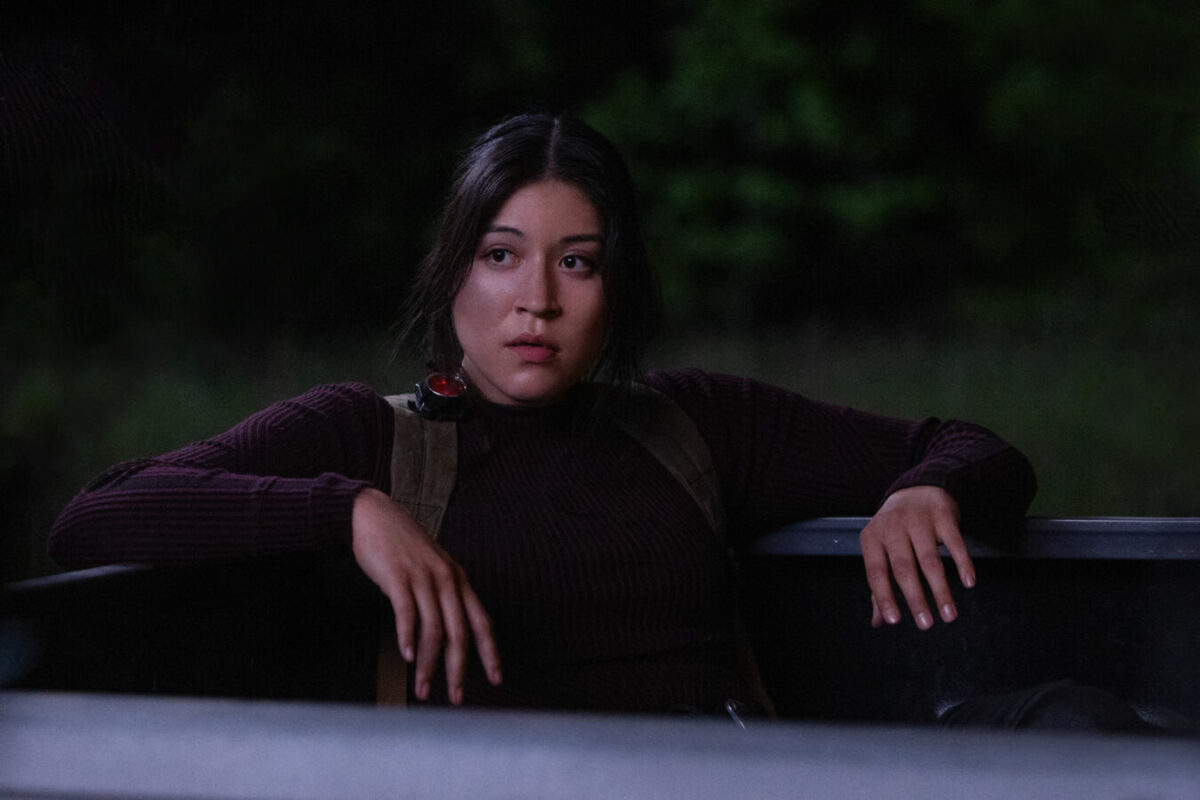
The second episode begins with a captivating depiction of an ancient Native American tribe engaged in a game of Indigenous North American stickball. This intense competition, more than just a game, represents the tribe’s struggle to maintain their land and way of life. In a pivotal moment, a Choctaw woman, empowered by visions, gains temporary enhanced physical abilities and reflexes, symbolised by a spiral – a powerful emblem in Native American culture representing life’s journey, growth, and change.
Episode three takes viewers even further, plunging them into a retro, black-and-white depiction of the Native American Lighthorsemen (tribal police). We meet Tuklo, an aspiring Lighthorseman who experiences a similar self-discovery, receiving temporary superhuman abilities marked by the same swirling symbol. This striking parallel serves as a double entendre, both honouring Native American history and mirroring Maya’s overarching narrative, reaffirming the cyclical nature of resilience and identity across generations.
Maya’s determination to dismantle Kingpin’s empire becomes evident as the story unfolds. She hatches a daring plan to send a message to the criminal, attaching a bomb to a train destined for Kingpin’s armoury. This high-stakes mission is not without its challenges. During a tense nighttime scene on a moving train, the visual clarity diminishes, amplifying the suspense but occasionally becomes difficult to follow in the darker scenes. In a crucial moment, Maya’s prosthetic leg becomes trapped, but a flashback imbued with spiral symbols enables her to momentarily access enhanced physicality and reflexes and facilitate her escape. These abilities, seemingly linked to her Choctaw heritage, appear to manifest in times of dire need, hinting at a deeper connection between her heritage and her powers.
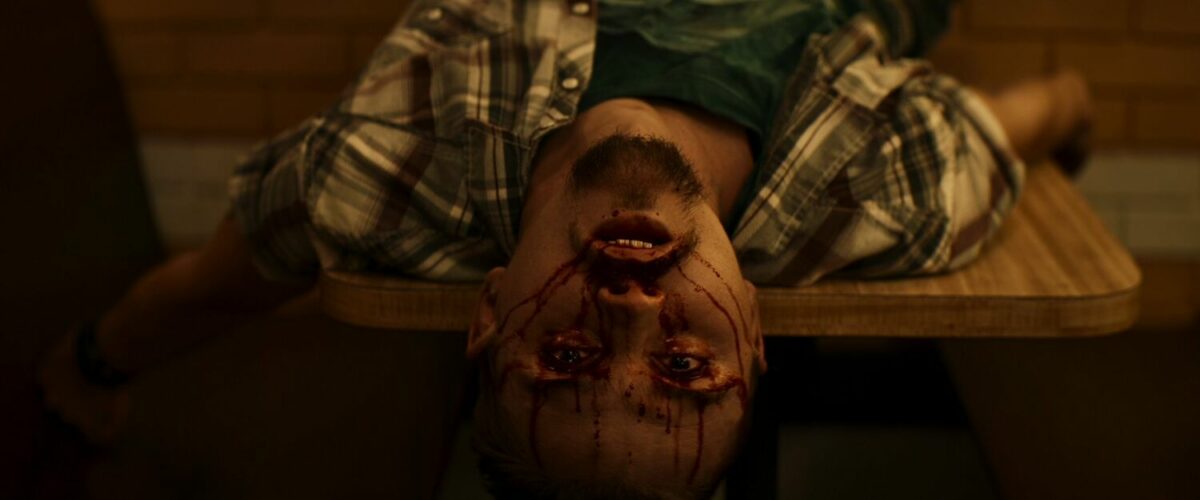
This theme of resilience and combat prowess seamlessly transitions into the unforgettable roller-skating rink action sequence in episode three, which stands out as one of the most dynamic fight scenes in the series. Set against the backdrop of pulsating rock music, Maya battles Fisk’s men with ferocity and skill. Despite her prowess, she is unable to overpower all her adversaries. In a surprising twist, the conflict is abruptly halted by Fisk himself, who makes a dramatic appearance towards the end of the episode. His intervention reveals a deeper layer to their already complex relationship, hinting at unresolved tensions and unspoken histories between Maya and her adoptive uncle. This episode, rich in action and emotion, deepens the narrative and character development, setting the stage for further revelations and conflicts.
As the episodes unfold, Maya Lopez faces a confrontation with her past and present. Alongside her cousin Bonnie, portrayed by Devery Jacobs, and Uncle Henry, she becomes entrapped in the skating rink, sparking strained and uneasy dialogues with Bonnie. These scenes dive into their complex relationship but sometimes cause the pacing to wane, especially in scenes focusing on family dynamics. While these moments are crucial for Maya’s character development and her journey to reconnect with her roots, they present a stark contrast to the otherwise fast-paced and intense narrative of the episode. This juxtaposition results in occasional pacing issues, making the storytelling and flow feel somewhat uneven.
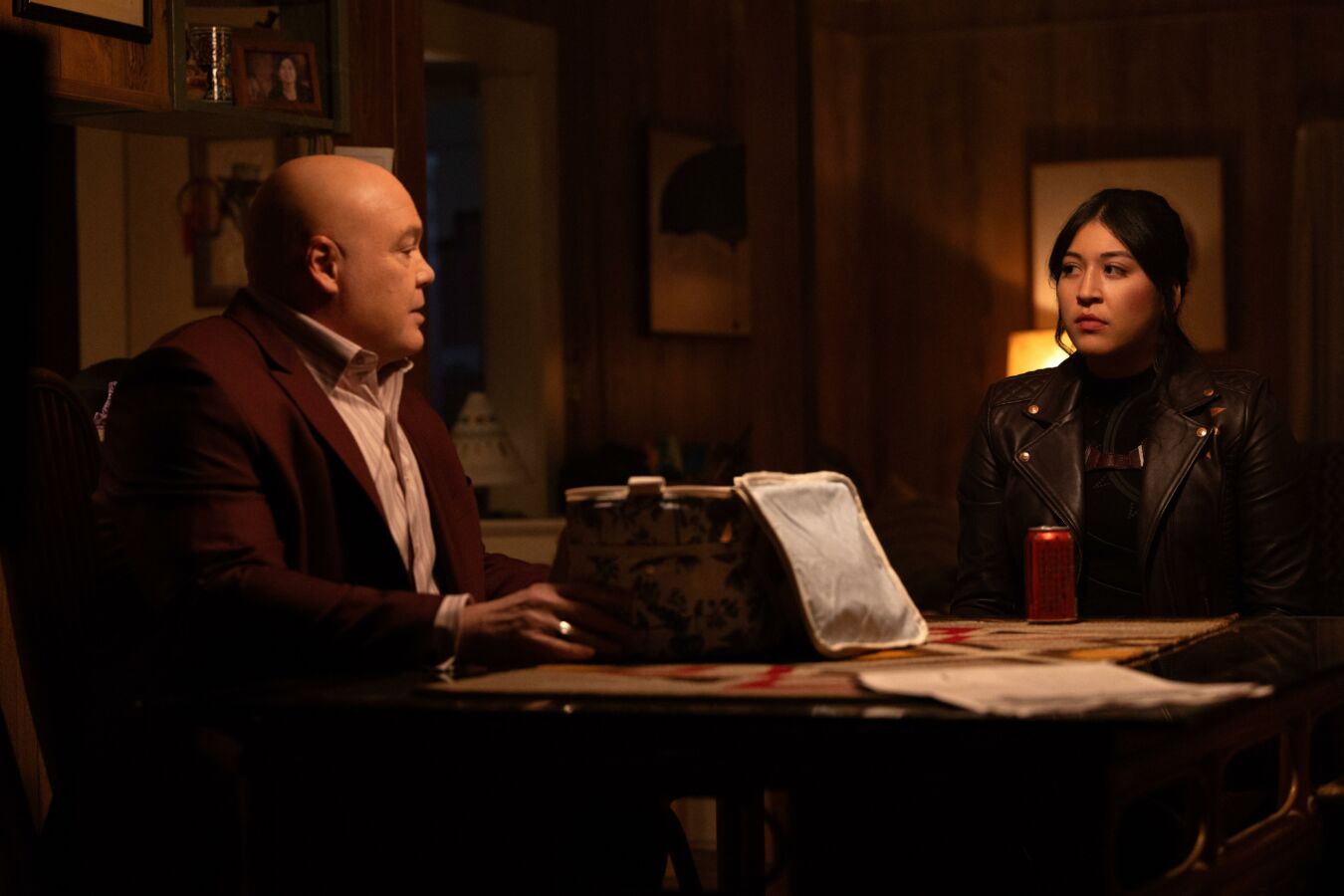
All in all, the first three episodes solidify Echo as a gritty, hard-hitting action thriller deeply rooted in Native American culture. Its TV-MA rating allows for a darker tone, distinct from other MCU projects, and sets an exciting precedent for the anticipated Daredevil: Born Again series currently in production. With Alaqua Cox’s compelling portrayal of Maya Lopez, Echo offers a refreshing shift from the grandiose, CGI-heavy narratives of recent MCU installments to a more grounded, street-level story that resonates with viewers looking for a more intense and personal superhero experience.
Echo premieres on Disney+ on 10 January.
GEEK REVIEW SCORE
Summary
At its core, Echo is a gritty and intense origin story for Maya Lopez, presenting a down-to-earth narrative that starkly differs from the MCU’s recent forays into extensive, CGI-heavy multiverse tales, albeit with struggles in maintaining consistent pacing.
Overall
7.5/10-
Story - 7/10
7/10
-
Direction - 8/10
8/10
-
Characterisation - 7/10
7/10
-
Geek Satisfaction - 8/10
8/10

